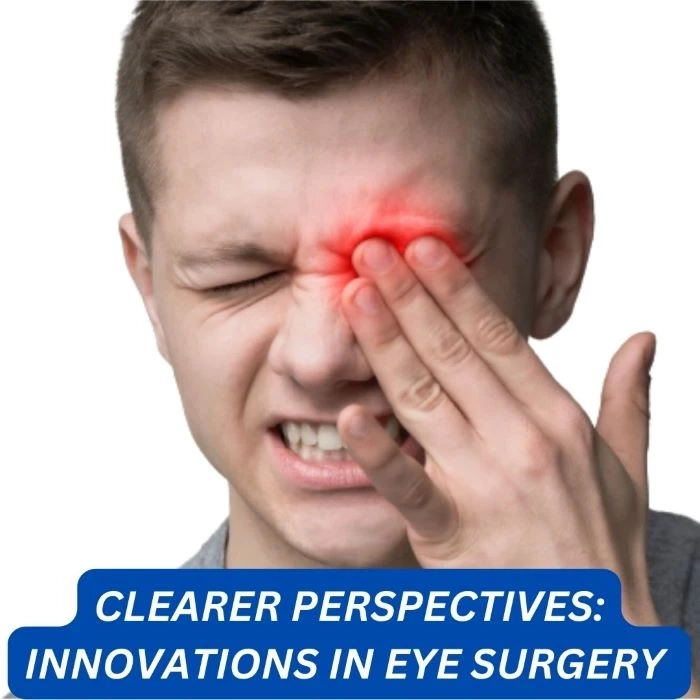Who need eye surgery?
Eye surgery may be recommended for individuals who are experiencing various vision problems or eye conditions that cannot be adequately corrected with glasses, contact lenses, or non-surgical interventions. Here are some situations in which someone might need eye surgery:
- Cataracts
- Refractive Errors
- Glaucoma
- Macular Degeneration
- Corneal Disorders
- Strabismus
- Ptosis
- Retinal Detachment
- Eye Trauma
- Eye Tumors
Why should i go for eye surgery?
Individuals might choose to undergo eye surgery for a variety of reasons, depending on their specific vision issues or eye conditions. Here are some common reasons why someone might opt for eye surgery:
- Vision Improvement: Eye surgery can provide a significant improvement in vision, correcting refractive errors such as nearsightedness, farsightedness, and astigmatism. Procedures like LASIK, PRK, and SMILE reshape the cornea to achieve clearer and sharper vision, reducing or eliminating the need for glasses or contact lenses.
- Cataract Removal: Cataracts can cause cloudy vision, glare, and reduced visual acuity. Cataract surgery involves removing the cloudy lens and replacing it with a clear artificial lens, leading to improved vision quality and color perception.
- Quality of Life: Improved vision can enhance overall quality of life, allowing individuals to perform daily activities, work, and hobbies more comfortably and effectively.
- Medical Necessity: Certain eye conditions, such as glaucoma or retinal detachment, require surgical intervention to prevent further vision loss or complications.
- Cosmetic Reasons: Some individuals choose eye surgery for cosmetic reasons, such as correcting eyelid ptosis (drooping), enhancing the appearance of the eyes, or reducing the appearance of under-eye bags.
- Visual Field Improvement: Surgery for conditions like strabismus (misalignment of the eyes) can improve eye alignment and coordination, leading to better visual field integration and depth perception.
- Correcting Corneal Irregularities: Eye surgeries like corneal cross-linking or corneal transplantation can correct irregular corneal shapes and improve vision in conditions like keratoconus.
- Preservation of Vision: Surgery might be necessary to preserve or restore vision in cases of retinal tears, detachments, or other serious eye injuries.
Can a blind person see after eye surgery?
In some cases, Eye surgery can potentially restore or improve vision for individuals who are visually impaired or legally blind. The success of the surgery and the expected outcomes should be discussed thoroughly with an experienced eye care professional. Factors such as the cause of the blindness, the health of the eye, the presence of other eye conditions, and the individual\'s overall health play a role in determining the potential for vision improvement. If you or someone you know is visually impaired and considering eye surgery, consulting with an ophthalmologist or eye surgeon is essential. They can provide a detailed assessment, discuss the available options, and help set realistic expectations for the potential outcomes of the surgery.
When you see a doctor for eye surgery?
A person should consider seeing a doctor for eye surgery under various circumstances, depending on their specific eye condition and vision issues. If you\'re experiencing significant visual impairment that cannot be adequately corrected with glasses or contact lenses, it\'s a good idea to see an eye doctor. They can determine the cause of your vision problems and discuss whether surgery might be an appropriate option. If you have refractive errors like myopia (nearsightedness), hyperopia (farsightedness), or astigmatism and you\'re looking to reduce your dependence on glasses or contact lenses, you might consider consulting a doctor about refractive surgery options like LASIK or PRK. If you have corneal conditions like keratoconus or corneal scars that are affecting your vision, an eye doctor can evaluate whether surgery, such as corneal cross-linking or corneal transplantation, could be beneficial. Conditions like retinal detachment or tears require prompt medical attention to prevent permanent vision loss. Surgery might be necessary to reattach the retina and restore vision.
Conclusion
In conclusion, eye surgery represents a diverse and advanced field within the realm of medical care, aimed at addressing a wide range of vision issues and eye conditions. As medical advancements continue to shape the landscape of eye surgery, the ultimate goal remains constant: to improve vision, preserve eye health, and provide individuals with the opportunity to experience the world with clarity and confidence.



